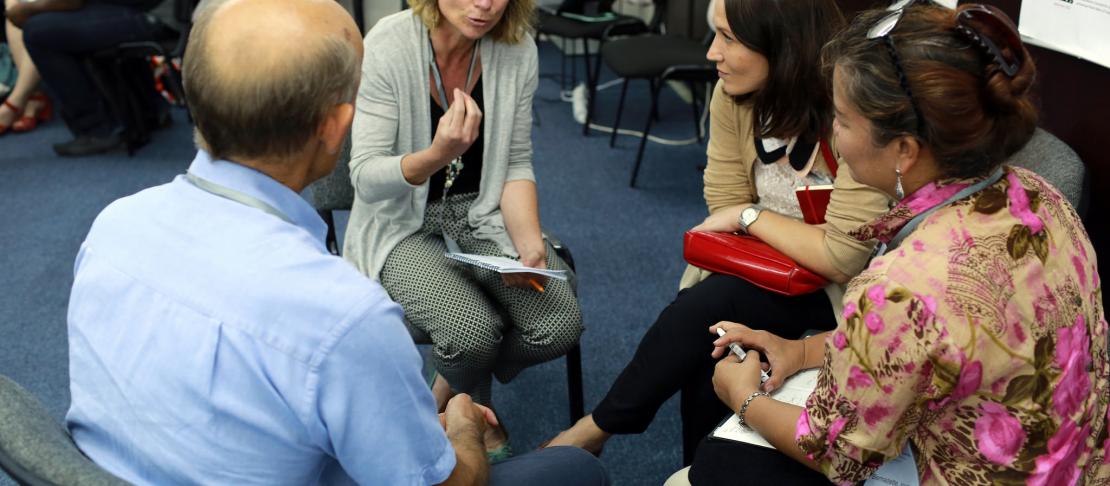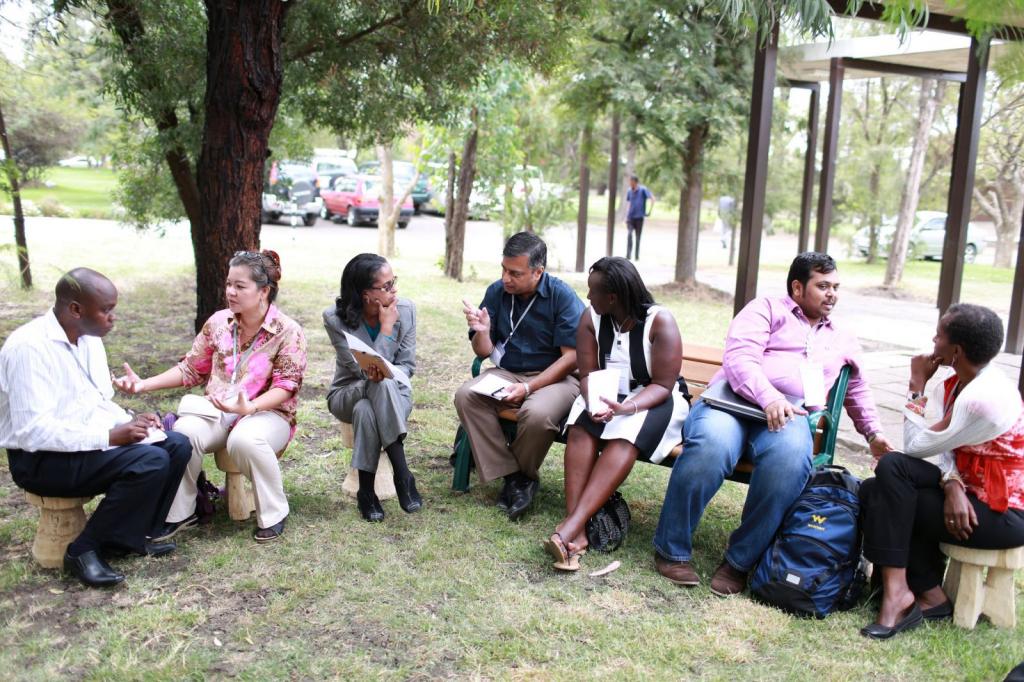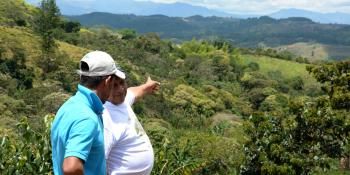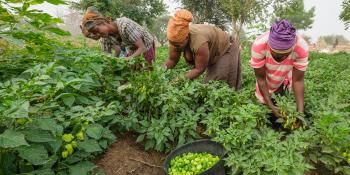Social Learning: A way to improve research-for-development programmes?

Carl Jackson and Peter Cranston reflect on their joint session on Social Learning at the AgKnowledge Share Fair.
"Talking up the most risky ways to engage with power during social learning processes wasn’t such a stupid idea for a session after all." This was the two of us weeks after leading an energising discussion on Social Learning at the AgKnowledge Innovation Process Share Fair in Addis Ababa, Ethiopia.
The Share Fair was convened by the International Livestock Research Institute (ILRI) and attracted around 60 people from across CGIAR and beyond. The ambition was to showcase, test and assess a set of promising ‘process improvements’ known to make (agricultural) research and development activities, programs, and institutes more effective, efficient, collaborative and where collective learning takes center stage.
Social Learning at the Share Fair
What is Social Learning?
In social learning, different stakeholders learn together through cycles of action and reflection, leading to transformative change.
CCAFS and partners are piloting a monitoring and evaluation framework to understand good social learning practices and assess their added value for development. The research will help to evaluate investments in learning processes that are time-consuming, but can produce more sustainable outcomes.
Learn more, download: Monitoring and Evaluation Framework for Social Learning (PDF)
The Social Learning session that we ran at the Share Fair had the ambition to explore processes that can move agriculture and rural development work onto the third transformational social learning loop and to dig into the opportunities and risks of doing so.
Many of the issues that prevent development from reaching its potential have a lot to do with how we learn, and how we learn together to transform the development/research ecosystems in which we work and live.
This is particularly true of wicked problems such as chronic poverty and climate change. Social learning is a complex and fascinating approach that puts the due emphasis on this transformational learning that involves the whole ecosystem around us.
Learning is an explicit objective of many process orientated approaches to doing agricultural development better (e.g. participation, action research, innovation systems, communities of practice, etc) and social learning shares many features with them. How to make more effective and creative the many processes we are part of in our work was the central theme of the ShareFair.
By imagining the worst case and honestly sharing personal examples, the practitioners in the Social Learning session sprung some great tips for engaging safely with power as designers and facilitators of agricultural learning processes that promote transformational change:
- Collaboratively map stakeholders and information flows
- Identify powerful actors and relationships
- Engage power strategically
- Make power relations transparent
- Ensure ownership
- Choose the right people to influence
- Identify safe windows to challenge power
- Have an exit strategy
- Work with social scientists
- Write proposals grounded in political analysis
Learning within much of research for development can often feel too limited to questions within the scope of pre-determined goals about efficiency (i.e. asking Are we doing things right?) and effectiveness (i.e. asking Are we doing the right things).
Social learning expands learning to potentially challenge the institutional arrangements (e.g. values, beliefs, governance) that set goals by asking How do we decide what is right?.
This third loop of learning can support transformational change, but in the process and outcome of doing so often engages with power (i.e. those organisations, groups and individuals who benefit most from existing institutional arrangements).
As process designers and facilitators supporting transformational change gathering in Addis, we hoped we could share knowledge and build capacities for navigating the opportunities and risks of challenging institutions when using social learning approaches. We weren't disappointed – as the practical tips for engaging safely with power above demonstrate. We need to be good at this for ourselves, but moreover for the co-learners we encourage to engage in change through social learning.
And if you really want to deliver a project that has zero influence on power structures through your learning activities just try:
- Ignoring culture and social structures
- Designing remotely and on your own
- Assuming science is neutral and decision making is rational
- Believing everyone shares common goals

Engaged and interactive participants at the AgKnowledge Share Fair really made the experience fun and invigorating. Photo: ILRI/Apollo Habtamu
Learn more:
- Flyer: Social learning for climate resilience (PDF)
- Read additional articles and blogs on Social Learning
The Social Learning session was facilitated by Carl Jackson, Westhill Knowledge and Pete Cranston, Euforic Services, with the aim to share one of these process improvements from the CCAFS Climate Change Social Learning Initiative.
They also tested another process improvement by facilitating the session by using the TRIZ method, and liked its results. Learn more about this and other Liberating Structures methods.



